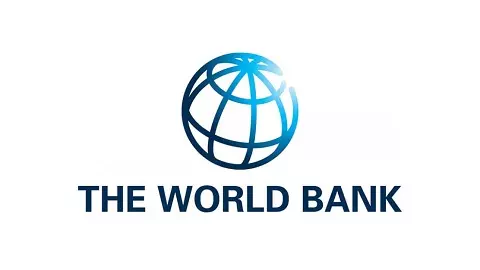Sindh, the second most populus province of Pakistan’s. Chief Minister Syed Murad Ali Shah held a high-level meeting with a World Bank team led by Country Director Najy Benhassine via video link to review the progress of a $3.1 billion active portfolio encompassing 13 developmental projects in the province.
The discussion focused on accelerating the K-IV Augmentation Project, producing a Root Cause Analysis (RCA) report on the recent gate failure incident in Sukkur Barrage, along with solar energy initiatives, infrastructure rehabilitation, and advancements in urban mobility, said a statement on Thursday.
During the meeting, the Chief Minister emphasised the significance of the Karachi Water and Sewerage Services Improvement Project (KWSSIP), which aims to improve access to safe water and enhance the operational efficiency of the Karachi Water and Sewerage Board (KWSB).
He outlined the project’s three main components: operational reforms, infrastructure investments, and project management.
Murad announced that work on the K-IV Augmentation Project, a $256 million component of the KWSSIP, will begin on December 30, 2024.
He said that land acquisition and necessary corrective measures are expected to be completed by February 2025.
He urged the World Bank to expedite the release of funds to ensure the project’s completion by the end of 2025. The World Bank responded with assurance of support and suggested that the Sindh government utilise its own funds initially, with a promise for reimbursement later.
The Chief Minister instructed the Chief Secretary to facilitate the release of funds to commence the K-IV Augmentation works.
The other important projects discussed in the meeting included the Sukkur Barrage Rehabilitation, where the preparation of the RCA report for gate failures is in progress, and the establishment of a Maintenance, Repair, and Operations (MRO) division was announced.
Additionally, progress on the Akram Wah Rehabilitation and the Sindh Water and Agriculture Transformation Project (SWAT), which aims to improve agricultural water productivity and support flood-affected farmers, was also reviewed
Another key focus of the meeting was the Karachi Mobility Project (KMP), a $382 million initiative designed to enhance mobility and accessibility through the development of the Yellow Line Bus Rapid Transit (BRT) system.
The project has achieved 12 per cent physical progress, with designs already approved, and the World Bank team expressed satisfaction with the ongoing efforts.
The discussions also included the Sindh Solar Energy Project (SSEP), a $100 million initiative aimed at enhancing solar power generation and improving electricity access in the province.
The first shipment of Solar Home Systems (SHS) kits arrived on December 11, with additional shipments scheduled for February and March 2025.
The CM underscored the importance of solarizing public buildings, with 19 sites expected to be completed by December 2024 and the remaining four by January 2025. Progress on solar power parks was reviewed, with land lease agreements and advisory services currently in progress.
The Sindh Flood Emergency Housing Reconstruction Project (SFHERP), funded with $500 million, was praised for its efficiency and the quality of work. So far, $383.3 million has been released, significantly contributing to the province’s flood recovery efforts.
The meeting, attended by senior ministers, secretaries, and World Bank officials, concluded with the Chief Minister instructing the Chief Secretary to expedite fund releases and ensure the timely execution of all projects. Shah reaffirmed his government’s commitment to completing these transformative initiatives, which are crucial for the province’s development.










